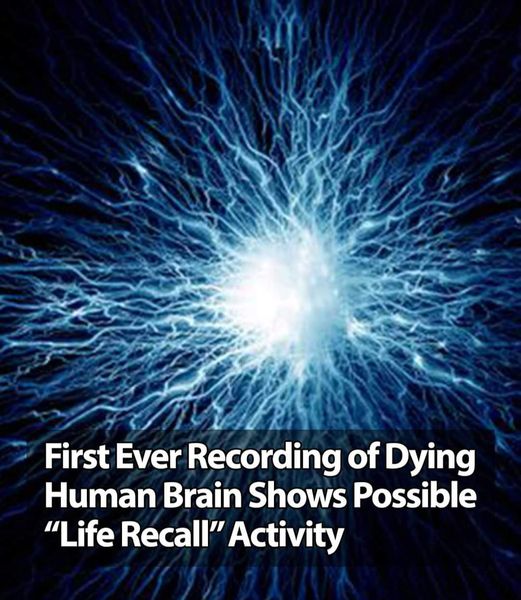In a groundbreaking study, scientists recorded human brain activity during death for the first time, revealing intriguing insights into what may happen in our final moments. The study, led by Dr. Ajmal Zemmar of the University of Louisville, observed rhythmic brain activity that suggests the possibility of “life recall,” where individuals may relive memories during their final seconds. Here’s a closer look at the findings and their implications.
A Serendipitous Discovery

The discovery occurred when an 87-year-old man with epilepsy was being monitored by electroencephalography (EEG) to manage seizures. During treatment, the patient unexpectedly had a heart attack and died, leaving researchers with a rare opportunity to record brain activity before and after death for the first time.1
Brain Activity Beyond Death

Researchers measured 900 seconds of brain activity, focusing specifically on the 30 seconds before and after the heart stopped. The EEG recorded various wave types, including gamma oscillations, which are linked to higher cognitive functions like memory retrieval and dreaming.
What Is “Life Recall”?

The concept of “life recall” refers to the experience where individuals report seeing their life flash before their eyes during near-death experiences. The rhythmic brain waves observed in this study suggest that the brain may engage in a similar process just before death, potentially playing back significant memories.2
Similarities to Near-Death Experiences

The gamma oscillations seen in the study resemble the brain waves observed during meditative states and dreaming. These oscillations may support the idea that, even as the body shuts down, the brain could be recalling past experiences, much like people report during near-death experiences.
Activity Persists After the Heart Stops

One of the most fascinating aspects of the study is that brain activity persisted even after the heart stopped beating. This observation raises important philosophical and scientific questions about when life truly ends and whether the brain continues to function after the heart stops.
Implications for Defining Death

The study’s findings challenge the current understanding of death. Traditionally, death has been defined by the cessation of the heartbeat. However, the persistence of brain activity after the heart stops suggests that the brain may continue to function for a short period after cardiac death, sparking debates about when death should be officially declared.
Potential Impact on Organ Donation

This research could have implications for organ donation. If brain activity continues after the heart stops, it raises questions about the optimal timing for organ donation. Should EEG recordings be included in the process to better understand when brain activity ceases?
A Source of Comfort?

For families dealing with the loss of a loved one, this study may provide some comfort. As Dr. Zemmar explains, the possibility that the brain is recalling pleasant memories in its final moments can bring solace to those grieving. “Their brains may be replaying some of the nicest moments they experienced in their lives,” Zemmar noted.
Limitations of the Study

While the findings are compelling, the study was conducted on a single individual who had epilepsy, a condition that affects brain function. Therefore, further research is needed to determine if these results can be generalized to the broader population. Similar studies in animals, such as rats, have shown comparable patterns of brain activity, suggesting this may not be an isolated phenomenon.
What’s Next?

This research opens the door to more questions than answers. Scientists are now tasked with exploring whether these brainwave patterns are universal and if they occur in all individuals at the time of death. The findings could reshape the way we think about life, death, and consciousness.
This groundbreaking study not only sheds light on the mysteries of the human brain but also invites deeper philosophical discussions about the nature of life and death. While more research is needed to draw definitive conclusions, the possibility that the brain may offer one last review of life’s memories brings new insights—and perhaps some comfort—about what might happen when we die.
